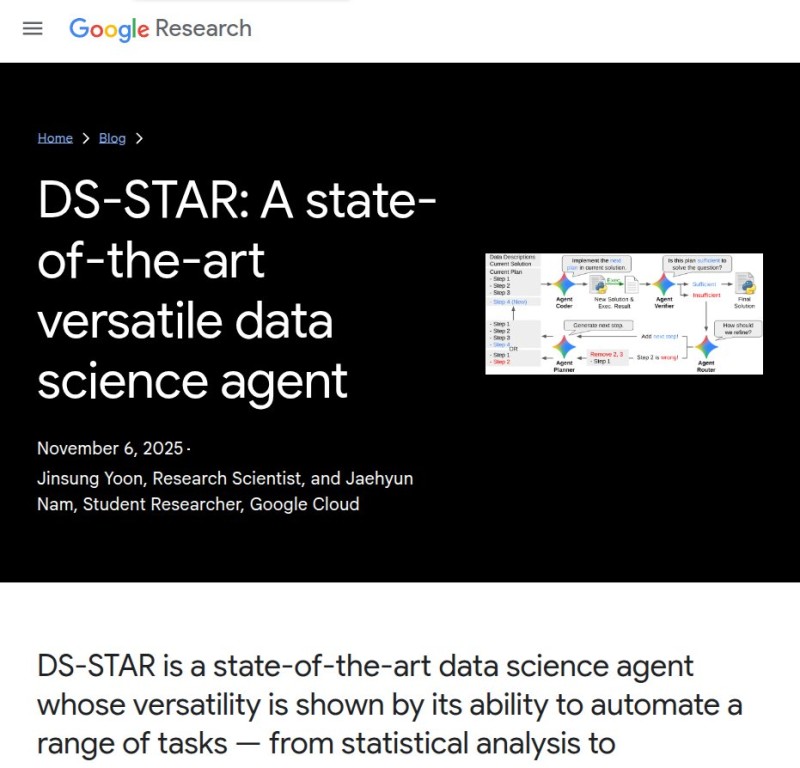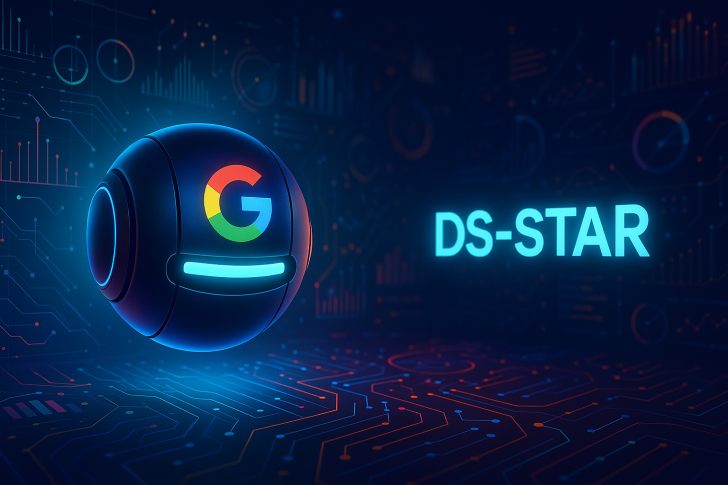Google Research has introduced DS-STAR, a breakthrough data science agent that's changing how organizations approach analytical workflows. Recently announced and confirmed through Google's official Research Blog, this system represents a major step forward in AI-driven data analysis for complex, unstructured datasets.
Breaking New Ground in Data Analysis
According to Google researchers Jinsung Yoon and Jaehyun Nam, DS-STAR tackles one of the biggest challenges previous data agents couldn't solve: working with messy, real-world data. Unlike earlier systems that needed clean CSV files, this agent handles JSON files, spreadsheets, Markdown documents, and free text seamlessly.

The system scans entire directories and creates plain-language summaries for each file, capturing structure, keys, schema details, and relationships. This gives DS-STAR the context needed to plan and execute multi-step analyses without guesswork.
DS-STAR automates the heavy lifting of data science work, including:
- Statistical analysis and data wrangling
- Visualization and code execution
- Task planning and self-verification
- Multi-file dataset navigation
How DS-STAR Works
The agent operates through a coordinated loop with four components. The Planner maps out actions, the Coder writes executable Python code, the Verifier checks if the output solves the problem, and the Router fixes errors or adds missing steps. This loop runs until the task is complete or reaches ten refinement rounds. Hard problems typically take 5.6 rounds to solve, while easy ones finish in about 3 rounds, with over half of simple tasks resolved in just one step.
Performance That Stands Out
DS-STAR achieved 45.2% accuracy on DABStep (first place as of September 2025), 44.7% on KramaBench, and 38.5% on DA-Code. These results significantly exceed earlier agents, which typically scored between 37% and 41%. Testing revealed that removing the Data File Analyzer dropped DABStep accuracy to just 26.98%, while removing the Router weakened performance across all difficulty levels.
The system shows impressive flexibility across AI models. A GPT-5-powered version performs best on simpler tasks, while the Gemini-2.5-Pro variant leads on complex multi-file problems, giving organizations flexibility in choosing the right backbone.
What This Means for the Future
DS-STAR bridges the gap between messy enterprise data and reliable analytical output like no previous system could. Its ability to interpret unstructured directories, generate working code, validate results, and refine its reasoning makes it one of the most advanced autonomous data science agents available. For enterprises, research labs, and data-intensive industries, this could transform how organizations handle analytics workflows and mark a turning point where automated data analysis became practical enough for everyday deployment.
 Eseandre Mordi
Eseandre Mordi

 Eseandre Mordi
Eseandre Mordi


